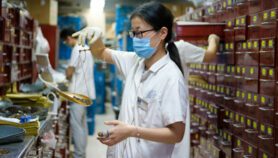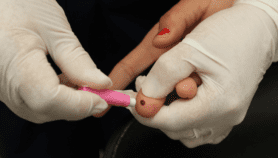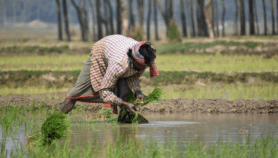By: Sumita Thapar
Send to a friend
The details you provide on this page will not be used to send unsolicited email, and will not be sold to a 3rd party. See privacy policy.
[NEW DELHI] India, which was declared polio-free by the WHO two years ago, has begun switching its reliance on oral polio drops to the injectable, inactivated poliomyelitis vaccine (IPV) delivered through its universal immunisation programme (UIP).
India’s success in eliminating the wild polio virus stands in contrast to the situation in neighbouring Pakistan and Afghanistan where the wild polio virus continues to be endemic. Pakistan recorded more than 300 cases in 2014 and 52 new cases in 2015.
Ramanan Laxminarayan, vice-president of the Public Health Foundation of India, a public-private initiative, tells SciDev.Net that India will have to maintain a strong programme given that polio remains endemic in Pakistan where there is distrust for immunisation programmes. An attack by religious fundamentalists on a polio centre in Quetta on January 13 left 15 people dead.
Since India began the rollout of the IPV programme in November 2015 it has been introduced in 17 high-risk states. Oral polio vaccine (OPV), which is given in campaign mode over and above routine immunisation, although rare, carries the risk of genetic reversion to the parent wild virus and can cause polio outbreaks. IPV, on the other hand, does not carry the risk of vaccine-derived polio.
With the wild P2 strain of the virus eradicated, the trivalent OPV will be replaced with a bivalent vaccine with no P2 component. After the switch is effected during two weeks of April 2016, all trivalent OPV in the world will be destroyed, says Bari.
“Introducing the IPV is the first step in phased withdrawal of OPV. IPV will be introduced in all countries including Afghanistan and Pakistan,” says Sona Bari, spokesperson for WHO in Geneva. “As we know, any vaccination is as good as its coverage; so high IPV coverage will be essential.”
Paediatrician and virologist T Jacob John, Christian Medical College, Vellore, says that he is happy that IPV is being introduced into the national programme. “It is completely safe and highly effective in children — and also offers excellent herd effect.” He defines herd effect as “the reduction of infection or disease in the unimmunised segment as a result of immunising a proportion of the population.”














